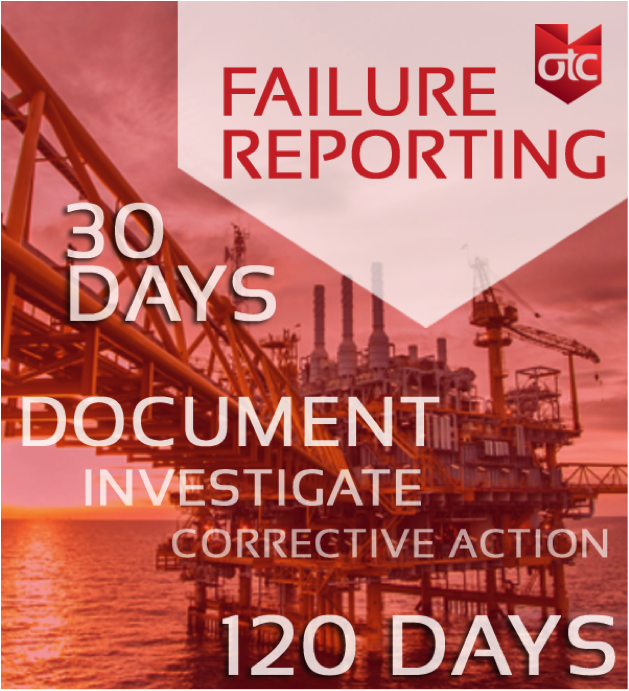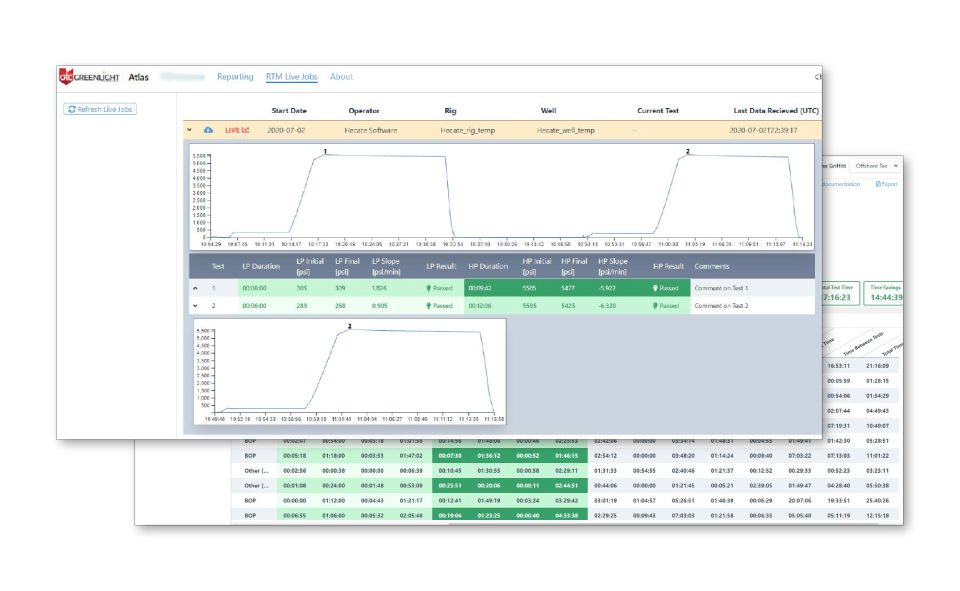- Have any questions?
- +985-727-7400
Federal Failure Reporting an Added Step for Offshore Operations

BLUEPRINT Reaches Into New Area
August 11, 2017
Flat or Curved?
October 23, 2017
OTC Solutions Offers Support in Managing Latest Reporting Requirements
Last year’s oil and gas regulation changes have had sweeping effects on how operators offshore go about doing business. Failure reporting and federally regulated deadlines in the 2016 Well Control and Production rules specified by the Bureau of Safety and Environmental Enforcement (BSEE) have added steps to larger offshore operators’ procedures and become an additional obstacle for smaller operators unprepared for these requirements.
The failure reporting regulation basically requires failures to be reported to the federal government within 30 days and an investigation and corrective action to be documented within 120 days of a failure, said Ben Madison, engineering manager for OTC Solutions, a subsidiary of Offshore Technical Compliance.
For operators who already have a formal failure reporting process in place, sending documentation to BSEE and other required groups is just an extra step; but for operators managing smaller operations without a formal process in place, this regulation can be a major undertaking.
Major operators are using paid-membership services to help with some failure reports compliance areas. API’s Reliability and Performance Information Database, or RAPID-S53, is a database helping oil and gas companies comply with the equipment failure notification requirements of the well control rule governing operations on federally-controlled oil and gas leases.
API’s RAPID-S53 system currently is used by members to collect data on all well control equipment component failures and to provide WCE System Integrators and component Original Equipment Manufacturers (OEMs) with details of such events.
A powerful tool to have, but even with this option in place, companies still may need guidance to ensure complete compliance with these new regulations.
As a way to help operators comply with failure reporting mandates while easing the burden on their existing staff, OTC Solutions provides failure reporting support for offshore operations where the new Well Control and Production rules apply. Failure reporting regulations fall under two major categories: well control and safety and pollution prevention equipment (SPPE).
“In some cases, OTC Solutions plays a more administrative role to ensure compliance with the latest failure reporting requirements. We review documentation and track progress to ensure the 30-day and 120-day deadlines are met as set out by BSEE’s standard,” Madison said. “In other cases, we take a more involved role, even conducting the onsite investigation into failures and making recommendations on corrective action as needed.”
The scope of OTC Solutions’ involvement can be customized to best meet a client’s needs. For example, if an operator experiences a failure, OTC Solutions’ experts can be called out to handle not just the reporting requirements, but assist in the subsequent investigation and corrective action plan, too – all while appropriately documenting the process to ensure compliance with current federal regulatory standards.
Additionally, operators may struggle with what constitutes a reportable “failure”. The regulation specifies that a failure must be reported to BSEE’s Office of Offshore Regulatory Programs within 30 days of the failure. Since there are no definitions of “failure” in any of the industry standards, BSEE added the general definition:
A failure is any condition that prevents the equipment from meeting the functional specification.
“However, what if you encounter an issue that doesn’t exactly fall under this definition? Such as a valve that leaks, but still functions properly? In such cases, OTC Solutions can advise on the process required to properly document the issue and ensure the possibility of non-compliance is removed,” Madison said.
Whether acting as an administrative partner or providing onsite compliance expertise, OTC Solutions’ goal is to ease the burden on our oil and gas clients so they can feel confident they are in absolute compliance with current regulatory compliance standards, he said.
“Navigating and managing regulatory compliance issues – including both the major regulation changes in 2016 – are what the specialists at OTC and OTC Solutions are trained for and have first-hand experience handling on a daily basis,” Madison said. “Our experience in inspections and equipment, as well as our deep level of knowledge of all regulatory compliance matters is an asset in this process.”
Failure reporting assistance is another way OTC strives to help oil and gas operators stay focused on their key goal of efficiently and safely recovering oil and gas reserves while managing costs. Contact OTC Solutions today to learn more about how we can help you manage failure reporting requirements under the new regulations.


